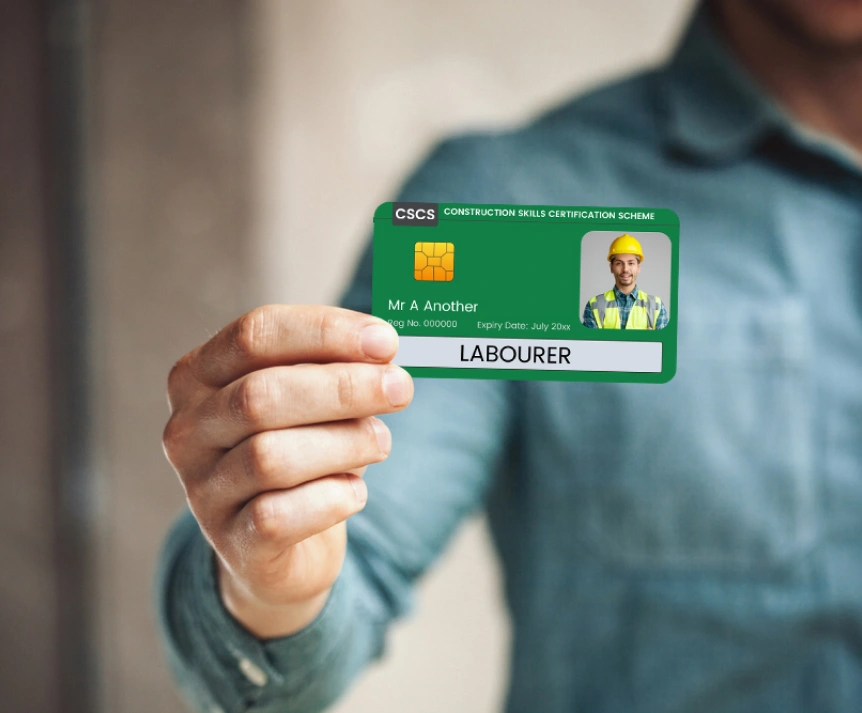
Bricklaying is a skilled trade that plays a crucial role in construction projects, shaping the buildings we live and work in every day. If you’re interested in becoming a bricklayer, it’s essential to understand the qualifications, training paths, skills required, salary expectations, and potential career progression. We’ve broken down everything you need to start and succeed in bricklaying, no jargon, just clear advice and practical steps.
Qualifications & Training for Bricklayers
Becoming a qualified bricklayer usually involves a mix of practical experience and formal training. The most common routes include:
Apprenticeships – The Most Common Path
Apprenticeships combine on-the-job training with classroom learning, allowing you to earn while you learn. You’ll typically spend 2–3 years gaining hands-on experience alongside a qualified bricklayer while completing nationally recognised qualifications.
Diplomas, NVQs and the CSCS Card – Building Your Credentials
Many bricklayers pursue NVQ Level 2 or 3 diplomas in bricklaying or related construction trades. These qualifications demonstrate your ability to perform the job to a professional standard.
To work on most construction sites in the UK, you’ll also need a valid CSCS (Construction Skills Certification Scheme) card. This card shows that you’ve met the required health and safety standards and usually requires an NVQ or equivalent qualification.
Together, your NVQ or diploma and a CSCS card form the essential foundation for a successful career in bricklaying. For step-by-step guidance on getting your card, see our detailed guide on the Bricklayer CSCS Card.
Explore More Construction Courses with Hurak
Looking to build your career in construction?
Hurak offers a wide range of industry-recognised training courses, from bricklaying and health & safety to site supervision and management. Whether you’re starting out or levelling up, we’ve got the right course for you.
Entry Routes into Bricklaying
There are several ways to start a bricklaying career, depending on your experience and educational background.
Starting as a School Leaver
Many young people enter bricklaying straight from school by enrolling in apprenticeships or college courses specialising in construction skills.
Becoming a Bricklayer with No Experience
If you have no prior experience, you can begin with entry-level positions or short training courses. Some employers offer on-the-job training for beginners who show enthusiasm and a willingness to learn.
College Courses and Short-Term Training
Colleges offer diplomas and certificates in bricklaying and construction, suitable for those who prefer classroom learning before entering the workforce.
If you’re just starting out, this guide on gaining site work as a bricklayer shares practical tips to help you land your first job on site.
Essential Skills Needed to Be a Successful Bricklayer
Physical fitness and manual dexterity are essential in bricklaying. The job involves lifting heavy materials, standing for extended periods, and using tools with precision, making good hand-eye coordination and stamina is crucial.
The ability to read plans and work with precision enables bricklayers to interpret technical drawings and construct structures accurately. A strong eye for detail ensures bricks are laid evenly and securely, following the project’s specifications.
Communication and teamwork are also important, as bricklayers rarely work in isolation. You’ll regularly collaborate with other construction professionals, so being able to follow instructions and coordinate effectively helps keep projects running smoothly.
Safety awareness is critical on busy construction sites. Knowing how to follow safety guidelines and use protective gear properly not only protects you but also keeps your coworkers safe.
Both new and experienced bricklayers can benefit from avoiding common bricklaying mistakes that impact quality and safety.
Bricklayer Salaries: What You Can Expect to Earn
Starting Salaries for Beginners
According to the National Careers Service, bricklayers starting out typically earn between £20,000 and £30,000 per year. This depends on your employer, location, and whether you begin through an apprenticeship or direct employment.
The Apprenticeships.gov.uk site confirms that most bricklaying apprentices begin with wages around the apprentice minimum wage, but this usually increases quickly as experience builds and training milestones are reached.
Earnings with Experience and Specialisation
Experienced bricklayers usually earn £30,000 to £40,000 annually, as reported by the National Careers Service. This is based on industry averages for qualified professionals who have progressed beyond entry-level roles.
Additionally, the gov.uk guidance on Skilled Worker visa sponsorship lists bricklaying roles with minimum salary thresholds ranging from £25,600 to £30,960, reflecting the expected earnings of skilled tradespeople.

Want to Boost Your Earnings and Take on Specialist Roles?
Completing the NVQ Level 3 Diploma in Bricklaying can significantly improve your earning potential. This advanced qualification is ideal for experienced bricklayers seeking supervisory roles or aiming to qualify for the CSCS Gold Card. With an NVQ 3, you're more likely to land higher-paying jobs and build a stronger career trajectory.
Self-Employment and Higher Income Potential
While direct government data on self-employed bricklayers is limited, the National Careers Service notes that bricklayers who are self-employed or run their own business may earn significantly more, depending on contracts and workload. Top-tier professionals in busy regions or those with niche skills may exceed £40,000 or more annually.
What Is the Bricklayer Work Environment Like?
Bricklayers typically work outdoors on construction sites, where their job can be physically demanding and requires them to endure various weather conditions. Their primary responsibilities include laying bricks, blocks, and stones, as well as mixing and applying mortar. They also measure and cut materials to ensure precision. Collaboration with other construction professionals is essential to meet project deadlines effectively. To minimise the risk of injury, bricklayers wear safety gear, including helmets, gloves, and boots.
Career Progression in Bricklaying
From Trainee to Skilled Bricklayer
With experience and qualifications, you can progress from an apprentice to a fully skilled bricklayer, handling more complex tasks.
Moving Into Supervisory or Management Roles
Experienced bricklayers can advance to become site supervisors, foremen, or project managers, overseeing teams and ensuring adherence to quality standards.
Becoming a Specialist or Self-Employed Contractor
Some bricklayers specialise in areas like restoration or stone masonry. Others start their own contracting businesses for greater independence and income.
Conclusion
Becoming a bricklayer offers a rewarding career with clear training routes, steady salary growth, and opportunities for advancement. Whether you start as an apprentice or enter with no experience, developing your skills and qualifications is key.
Bricklaying combines physical work with craftsmanship, and those who stick with it can enjoy a fulfilling career in construction.
NVQ Level 2 Diploma in Bricklaying
Perfect for beginners or entry-level workers
This qualification demonstrates your ability to carry out bricklaying tasks safely and to a professional standard on site. It’s ideal if you’re looking to apply for the CSCS Blue Skilled Worker Card.
FAQ’s
How long does it take to become a qualified bricklayer?
Typically, apprenticeships last 2–3 years, but some individuals gain skills more quickly, depending on their commitment and available opportunities.
What qualifications do I need to start?
Entry-level apprenticeships often require GCSEs or equivalent, but some employers accept learners with no formal qualifications.
Can I become a bricklayer with no experience?
Yes, many individuals begin with no experience, often through apprenticeships, training courses, or on-the-job learning.
What is the average salary for bricklayers?
Average salaries range from £18,000 for beginners to £35,000+ for experienced workers; self-employed bricklayers can earn more.
Is bricklaying a physically demanding job?
Yes, it requires strength, stamina, good hand-eye coordination, and a focus on safety.
Explore Other Popular NVQs to Boost Your Bricklaying Career
If you’re interested in advancing your skills beyond repointing and bricklaying basics, pursuing NVQ qualifications is a great way to build your expertise and qualify for various CSCS cards.
Level 2 NVQs | Level 3 NVQs |




